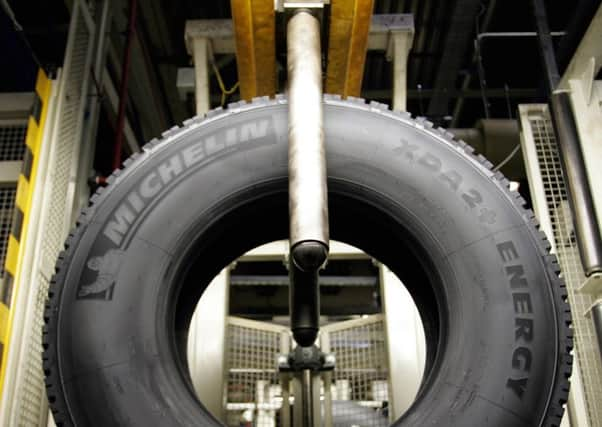Michelin: Where are the jobs for Ballymena’s next generation?


Along with the Gallaher plant at Lisnafillan, it was a major employer paying solid wages which helped generations to acquire a car, a mortgage and foreign holidays.
Nowadays these things are, more or less, taken for granted but back in the post-war era it was the arrival of big firms like Michelin which truly changed the lifestyle of Ulster’s working class.
Advertisement
Hide AdAdvertisement
Hide AdAnd that’s why the demise of Michelin - along with the JTI (formerly Gallaher) plant - is such a bitter blow to not only to the Ballymena area, but the whole of Northern Ireland.
The impact on the district will be enormous.
The town - like so many others in the province - has already witnessed serious retail decline and an end to wage packets from the tyre giants will only make the situation worse.
And that was a point which workers leaving the factory in the wake of the announcement made time and time again.
“It’s not just the jobs here which have been hit,” said one man. “It will be felt right across the board in this area. JTI closing was bad enough but with Michelin going over the next few years you can expect to see a ripple effect on the economy.”
Advertisement
Hide AdAdvertisement
Hide AdI asked one union official how the news had been received in the 12 noon meeting at the factory.
“There was no dissent. No one was mouthing off or anything. People just seemed to feel a weight descending on them. To be honest, for most people the reality of the situation has not sunk in yet,” he told me.
In the long term, it is very difficult to see how jobs of this calibre can be returned to Northern Ireland and that is an issue which needs to be seriously addressed by all politicians and relevant agencies. A great deal is being made out of a £5 million ‘re-training’ fund which is part of the closure package but this is scarcely comforting the workforce.
In the words of a union official: “Re-training for what? What kind of jobs will we re-train for? Where are the jobs going to be? In fact, where are the jobs going to come from for the next generation?”